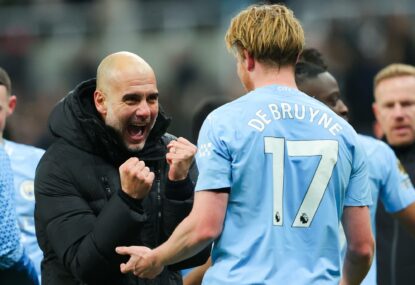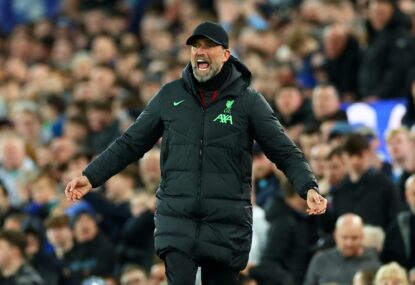The 2010 World Cup in South Africa was marked by another dismal showing by the English national side. England’s big guns again failed to fire, and patches of impressive qualifying form failed to come to fruition as England were on the receiving end of some textbook counter-attacking football from Germany.
But was it a great surprise that one of England’s most talented sides since the cup winning side of 1966 didn’t deliver?
No it wasn’t.
Even with a talented band of footballers, England were plagued by the same issues: A shortage of chemistry and a seeming lack of appreciation for each others abilities.
Indeed, many would argue that the English national side will never win a World Cup again, because it is an egocentric team of individuals all trying to prove themselves to the football public on an individual level, rather than as an amalgamated unit.
For England fans and football pundits, England have never proven themselves like they did in 1966, nor have they ever got close enough to legitimizing their claim of boasting the 11 best footballers at every major tournament.
Many are desperate to see England actually live up to their status of being a top 10 team and, the answer to that, may just be youth.
Apart from boasting a feast of talent, England’s under -21 side have demonstrated the chemistry, unity as a team and an appreciation for their team-mates respective styles and abilities that the senior English national side lacks.
The under-21’s also demonstrated their ability to perform on the biggest of stages, as they made it to the final of the UEFA European Under-21 Championship, performing admirably throughout. Albeit for an ironic, and commanding loss at the hands of the German under-21 side, England’s young team demonstrated that if kept together, they could be a force to be reckoned with in the future.
Players like: Danny Welbeck (Manchester United), Jack Rodwell (Everton), Daniel Sturridge (Chelsea), Tom Cleverley (Manchester United), Jack Wilshere (Arsenal), Andy Carrol (Newcastle), Keiran Gibbs (Arsenal), Chris Smalling (Manchester United), Danny Rose (Tottenham) have all demonstrated enormous quality for the under-21’s, both as individual players, but also as a part of a team.
But what seems to make all of these players tick, both individually and as a unit, is their respect for the England shirt and their driving ambition to be recognized by their respective club managers and England manager Fabio Capello.
With 44-years of disappointment a harsh reality, it may just be time for Fabio Capello to put trust in his youth, and to revolutionize the full England national side.
Capello needs to look no further than the fortunes of Germany in South Africa as inspiration.
Joachim Low’s German side, the same side that comfortably dispatched of Capello’s disgruntled England side in the World Cup, had been made-up of fledglings from their under-21 triumph over England the year before.
Prior to the World Cup, Low’s trust in his youth had created mixed emotions among football followers abroad, because in contrast to England, Germany has a history of being a successful team in major tournaments and many believed Germany’s youngsters were in way over their heads.
The German team proved to be one of the greatest yet, as Germany made it to the Semi-final and demonstrated some technically beautiful, fluent football, that had outshone performances from some of Germany’s greatest World Cup teams in the past.
Through Germany’s triumphs, Mesut Ozil, Thomas Muller and Sami Khedia emerged as the forefront of Germany’s new generation of football.
Capello must go about the same method as Low did.
Although, trusting youth can be risky business, England have nothing to lose. There is also no guaranteeing that 4-years from now, where a number of England’s prime young players will be playing in Brazil, the same unity will demonstrated as seen now by the England under-21’s, but the English national side must turn a new leaf and try something new.
For nearly half a century, English players and managers have promised to have an impact, have promised to galvanize and consolidate a squad, but have failed.
The success of the under-21 English side, is a screaming catalyst for change and must not be ignored.



































































































